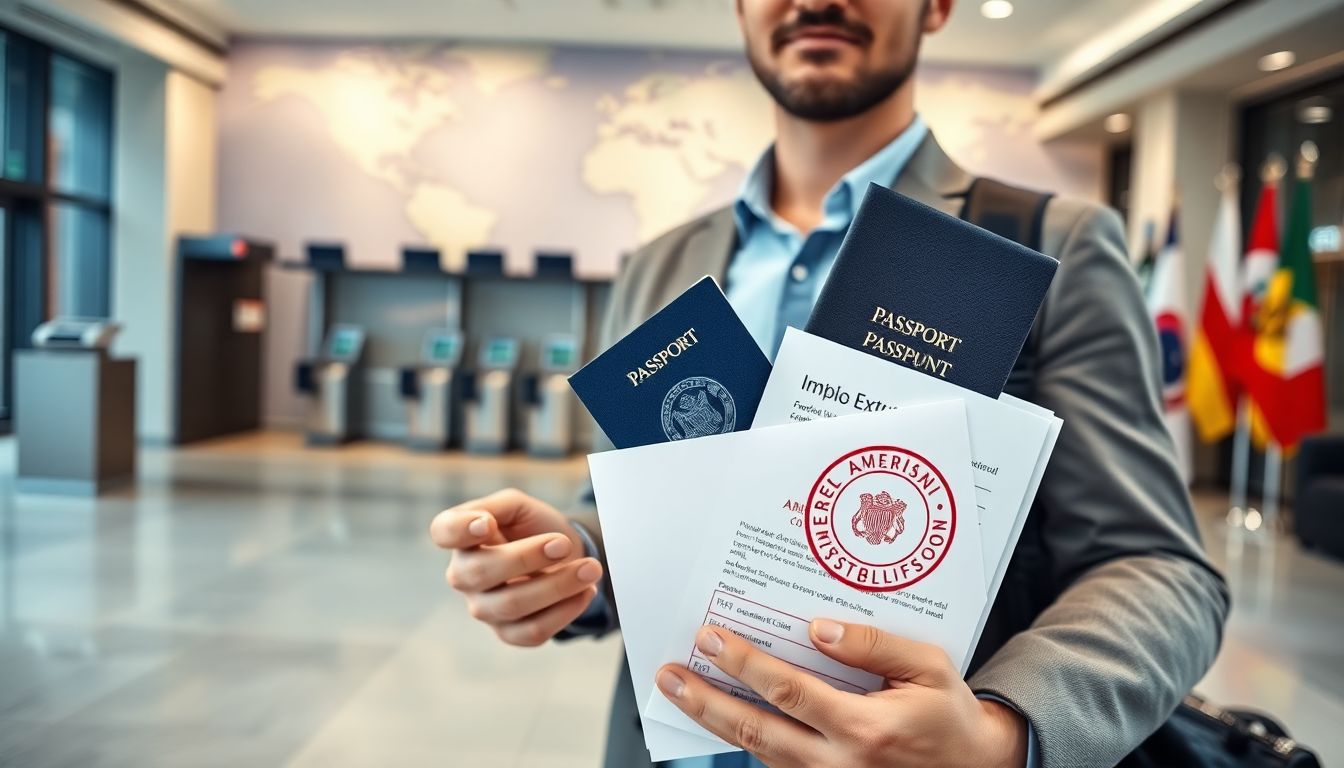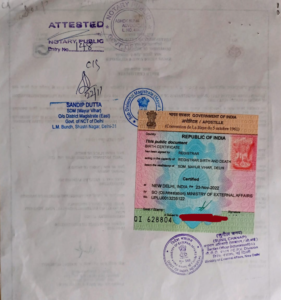Certificate Attestation in DelhiCertificate Attestation in Delhi and Apostille for Traveling Overseas: A Complete Guide to Simplify Your International Documentation
Introduction
Traveling abroad? Whether for work, study, or settling in a new country, your documents need to be verified. Verified papers prove your identity and qualifications, protecting you from legal issues later. As global mobility increases, more people need certified documents for visas, jobs, or education. Knowing how certificate attestation and apostille work can save you time, money, and headaches. It helps ensure your paperwork is accepted quickly and smoothly by foreign authorities.
What is Certificate Attestation and Apostille? An Overview
Definition and Purpose
Certificate attestation is the official process of verifying your documents to meet the legal standards of the destination country. It involves multiple steps with government agencies. Apostille is a type of certification, a special seal that confirms a document is genuine. It’s mainly used where countries have signed the Hague Convention of 1961. Both methods help recognize your documents abroad, making sure they’re accepted without issues.
Legal Framework and International Agreements
The Hague Convention of 1961 is a key treaty signed by many nations. It allows countries to accept documents with an apostille stamp instead of full attestation. Countries that haven’t signed require documents to go through local attestation procedures instead. This treaty simplifies legal paperwork, making international transactions smoother.
Types of Documents Requiring Attestation/Apostille
- Educational Certificates: Diplomas, transcripts, degrees
- Personal Documents: Birth, marriage, and death certificates
- Commercial Documents: Export invoices, certificates of incorporation, power of attorney
If you’re planning to study, work, or start a business overseas, these documents will often need certification.
The Process of Certificate Attestation
Step-by-Step Attestation Procedure
- Notarization: Some documents require notarization by a recognized notary.
- Home Department Attestation: Local government verifies your document.
- State Attestation: State authorities authenticate further.
- Central/Government Attestation: Final approval by the ministry or other national agency.
- Embassy/Consulate Attestation: The embassy or consulate of the destination country confirms legality.
Each step ensures your document is genuine and legally valid abroad.
Required Documentation for Attestation
- Original document (diploma, birth certificate)
- Passport copy
- Application form
- Supporting papers (if needed)
Make sure your documents are clear and correctly formatted to prevent rejections.
Timeline and Cost Factors
The process can take anywhere from a week to several weeks, depending on the type of document and destination country. Costs vary based on document type and the number of certification steps, plus courier fees for fast delivery.
Tips for Efficient Attestation
- Always verify the exact requirements with official government portals.
- Prepare all documents in advance.
- Use reputable attestation agencies for faster service.
- Keep copies of original papers for backup.
- Track your documents to avoid delays.
Apostille Process: Simplified or Same as Attestation?
Understanding the Apostille Seal
An apostille is a special sticker or stamp issued by authorized agencies. It confirms a document’s authenticity. Countries part of the Hague Convention recognize this seal. Apostille is often quicker and easier than traditional attestation, especially for travel or work in these countries.
Countries Implementing the Hague Convention
Major nations like the US, UK, Canada, Australia, and most European countries participate. If you’re heading to one of these, applying for an apostille usually saves time and effort. But if your destination isn’t part of the treaty, you’ll need full attestation.
How to Obtain an Apostille
- Identify the issuing authority: Usually the state or central government agency.
- Submit the original document: Along with an application form.
- Pay the fee: Based on document type and urgency.
- Receive the apostille: Typically mailed back or collected in person.
Follow official instructions to ensure proper processing.
When to Choose Apostille over Attestation
- For countries in the Hague Convention, choose an apostille—it’s faster and less complicated.
- For non-member countries, go with traditional attestation.
- When time is tight, apostille can cut weeks off your process.
- In cases like employment or student visas, apostille often speeds up approval.
Challenges and Common Issues in Certification Processes
Delays and Bureaucratic Hurdles
Long queues, missing documents, or errors in paperwork can cause delays. Sometimes government offices operate with limited staff, adding to waiting times. Double-check all details before submitting.
Document Rejections and Corrections
Common causes include incorrect data, incomplete forms, or outdated signatures. Fix these issues promptly and re-submit to avoid further delays.
Differences Between Countries’ Requirements
Each country has unique rules. Some require notarization first, others need additional translations. Always confirm country-specific procedures through official channels.
Expert Insights
Legal professionals recommend working with certified agencies. They stay updated with latest regulation changes. Visit official government portals regularly for updates and guidelines.
Practical Tips for Travelers and Professionals
Pre-Travel Documentation Checklist
- Collect all original certificates.
- Make copies and keep digital versions.
- Verify with the embassy about specific requirements.
- Start the process early to avoid last-minute issues.
Working with Certification Agencies
- Choose reputable, authorized service providers.
- Read reviews and ask for references.
- Confirm processing times and costs beforehand.
- Make sure they handle all steps correctly.
Maintaining Certified Documents
- Store documents in a safe, dry place.
- Use waterproof folders or digital backups.
- Check expiry dates if applicable.
- Update certificates if needed for validity.
Digital Copies and E-Verification
Some countries accept scanned or certified digital versions. As technology advances, electronic verification might become a standard. Staying up-to-date helps avoid losing precious documents.
Conclusion
Having your certificates properly attested or apostilled is an essential step for success abroad. It not only ensures your paperwork is accepted but also saves you precious time and money. Always plan ahead, double-check procedures, and work with trusted agencies. This preparation can make your international move smooth and stress-free.
Additional Resources
- Official US Department of State – Notarization & Attestation
- Hague Conference on Private International Law
- Find certified attestation agencies through local directories.
- Contact your country’s embassy for specific instructions.
- FAQs: Common concerns include costs, timelines, and whether your document needs translation.
Taking the right steps now guarantees your documents will be ready when you need them abroad. Prepare wisely!


